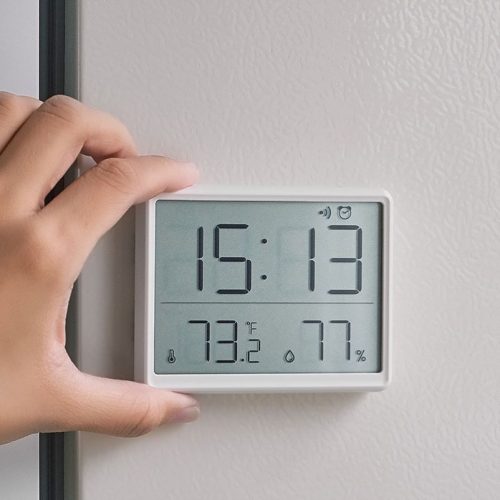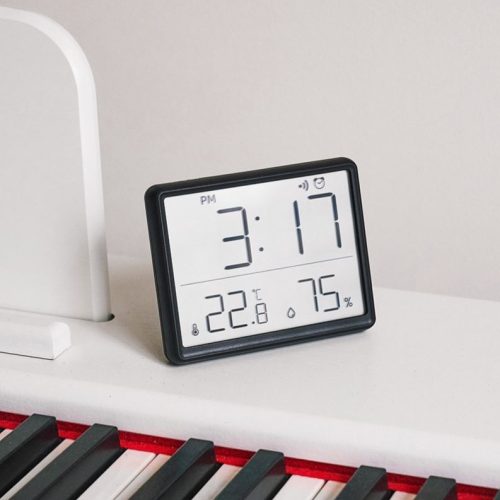Hygrometers play a crucial role in home maintenance by helping to monitor and manage humidity levels, which is essential for various aspects of indoor comfort and preservation. Here’s how hygrometers contribute to home maintenance:
- Preventing Mold and Mildew: High humidity levels can promote mold and mildew growth, which can damage walls, ceilings, furniture, and compromise indoor air quality. Hygrometers help homeowners monitor humidity to prevent these issues by keeping humidity levels within an optimal range (typically between 30% to 60%).
- Preserving Wood and Furniture: Excessively dry or moist conditions can damage wooden furniture, flooring, and musical instruments. Hygrometers help maintain the right humidity levels to prevent warping, cracking, or swelling of wood, preserving its integrity.
- Protecting Electronics: High humidity can negatively impact electronics by causing corrosion and moisture damage. By monitoring humidity levels, homeowners can ensure that sensitive electronic devices are kept in an environment that minimizes moisture-related issues.
- Enhancing Comfort: Balanced humidity levels contribute to overall comfort in the home. When the air is too dry, it can lead to dry skin, irritated sinuses, and static electricity. On the other hand, excessive moisture can cause discomfort and a clammy feeling. Hygrometers aid in achieving a comfortable indoor environment.
- Energy Efficiency: Monitoring humidity levels can also contribute to energy efficiency. Controlling humidity can complement heating and cooling systems, ensuring they operate optimally without unnecessary strain due to extreme moisture levels.
- HVAC System Maintenance: Hygrometers help homeowners assess the performance of their heating, ventilation, and air conditioning (HVAC) systems. They can detect issues such as inefficient dehumidification or over-humidification, allowing for timely maintenance and adjustments.
- Seasonal Adjustments: Humidity levels can vary seasonally. During the winter, indoor air tends to be drier due to heating systems, while summer months might bring higher humidity. Hygrometers assist in making seasonal adjustments to maintain optimal humidity levels year-round.
By using hygrometers to monitor and manage humidity levels, homeowners can protect their property, enhance indoor comfort, preserve belongings, and maintain a healthier living environment. Regularly checking and adjusting humidity levels based on hygrometer readings can significantly contribute to effective home maintenance and long-term preservation.


